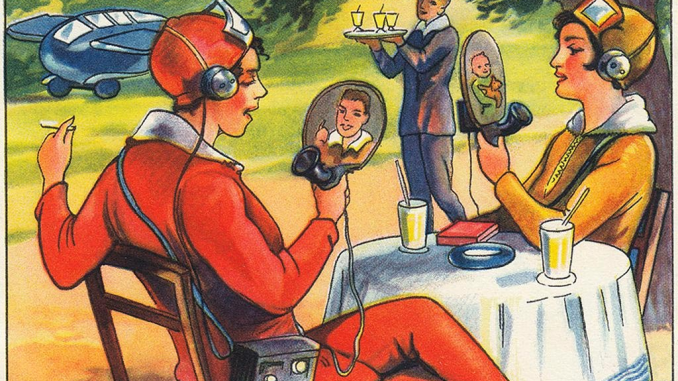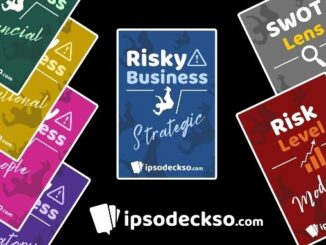
The perspective of a French Economics, Social Sciences and Management teacher
Expressing a vision of the future is taking a risk. Nevertheless, it’s useful to imagine what where the underlying and powerful trends of today could lead. Gamification relies on attitudes carried by video games: urgent optimism; bonds, trust and cooperation; blissful productivity; epic meaning. Gamifying group activities helps verbalising, understanding, discussing and willing agreement to the rules. It develops agency and responsibility. Gamification can occur in popular education or in more institutionalised contexts, such as middle and high schools. Using game-based aesthetics also changes how adults perceive and get involved as a team in group work. Gamification of academic and professional formation could lead to a more cohesive, understandable and engaging “skill-tree based” system. It would be more inclusive of the many long-life paths to professional capabilities. Yet, there is much to establish in terms of gamification ethics, connected to the use of personal data that are used in tracking, monitoring and profiling programs. Gamification could be a tool to empower individuals and communities or another means to enforce social engineering to the profit of powerful and untrustworthy entities. It could pave the road for Utopia or Dystopia.
Expressing a vision of the future is taking a tremendous risk
Chaos theory
First, unpredictable events can happen because of interactions between uncountable variables. As chaos theory states, an insignificant deviation of one of those elements can grow into a huge gap in the long term.

Choices
Moreover, the shape of the human future relies on individual and collective choices. Even if we adopt a purely deterministic view, those choices are nearly impossible to foresee.
Has Futurism always guessed wrong?
The “what if” reasoning when studying History, named alternative Historia, confirms that even when choosing a critical node and the alternative event of our choice, the way things could have turned remains highly speculative. That explains why Retrofuturism (the study of how we used to imagine the future) is sometimes so funny…

… and sometimes so accurate!

Being aware of our cognitive bias to keep an open-mind about predictions
Secondly, any prediction would involve the bias of the audience such as its hopes and fears. Pessimistic or optimistic, interested in any way by the outcome, educated or not, people will quickly praise or condemn those who dare to express their thoughts.
Why is Futurology useful?
Nevertheless, Futurology is useful. It makes us think more deeply about the long term trends and determinants. It’s a way to try an educated guess. It’s a method to make the trial and error process more efficient. More than anything, it empowers the human species by making it able to think strategically, to trace a path towards a better future, to identify critical times, to make decisions out of immediate ignorance, interest, or inertia (3)
Moreover, Futurology is often used by policy-makers to expose their plans, or even make their policies acceptable in the present.
During this perilous exercise, we will present some of the recent events that seem to indicate robust trends, we will express conditions for a prediction to happen and we will take position for some outcomes.
We will do our best to be both imaginative and informative. We ask for the reader’s indulgence: while we have played a Warhammer 40k Eldar army for a while, it’s our first day as a Foreseer.
Will gamification improve pro-social behaviours, motivation and academic and vocational orientation?
How I Gamified group-life before I knew I did
I discovered the academic study of gamification through an iconic 2010 Ted Talk by Jane McGonigal (4). She intended to build upon some attitudes carried by video games: urgent optimism; bonds, trust and cooperation; blissful productivity; epic meaning. Canalizing those “super powers” would both empower individuals and communities, and help tackling global issues.
Guess the name of the think-tank where McGonigal works in Palo Alto? “The Institute for the future.”(5)
Reflecting on this Ted Talk, I realised that in 2004, I already gamified my day-to-day management as a child counsellor. 2004 was an Olympic year, so I used the theme of sports to handle safety and misbehaviour issues with my group of children aged from 10 to 14 years old. For the first time, I was working for a social centre in a challenging neighbourhood in Marseilles. So I had the idea of making a scoreboard for all the activities we did, of organizing teams and of creating a disciplinary board inspired by sports federations.
What really matters when gamifying group interaction?
When you have children under your responsibility, you need to set and enforce instructions. That’s for the children’s own good. Making an analogy with sports opened new perspectives. Getting a yellow card one day would be harmless. Getting two yellow cards on the same day would lead to a cosequence decided by other children and presided over by the counsellor. This has been a great opportunity to delay the decision; incentivise good behaviour until it was established; create time to discuss the behaviour; explain why it was dangerous or inappropriate without making the child feeling personally accused or misunderstood; introduce children to the principles of the rule of law, due process, proportionality of offences and penalties, conditional sentence and forgiveness. I could overrule the court’s excessive decisions, however my advice has almost always been listened to.
It’s been a great success. Verbalising the rules and the process made the children aware of those. The fact that conseqiences took place later in a safe place and in a not in a hurry was best for expressing feelings, explaining intentions and consequences of the behaviours, and acknowledging the eventual harm done to the victim. By decontextualising and empowering the children, we built a community bonded by common norms and values, and trust improved a lot.
In popular education, we do not believe that problems are solved with tricks. Of course, we couldn’t tackle every issue but we faced it as a community. Children have been empowered and have developed agency and responsibility. That’s a success on its own and it fuels popular education.
This is the popular education way.
Transforming school life by drawing inspiration from Hogwarts
In 2019, 15 French middle schools introduced a system inspired by Harry Potter’s House Cup (6). Like in Hogwarts, pupils were separated in teams called “Houses” which included children of different ages. All year long, good deeds were rewarded, such as helping at the canteen, outstanding participation in class or being helpful to other kids doing their homework. Elder children had more responsibilities towards the young ones. At the same time, misbehaviour led the House to lose points. Explanation of rules and expectations, empowerment, stronger feelings of belonging and peer pressure led to a better school climate and fewer offences.
The point is that the regulation system still exists. Changing its aesthetics makes it more explicit and more engaging. This is quite a paradox. Increasing psychological distance puts the actors in a situation of suspension of disbelief, thus leading the system to become odd and salient. Therefore, this regulation system must be more explicit, better discussed to become more relevant and accepted.
50 pts to Gryffindor!
How is it that changing aesthetics of regulations also changes social relations?
As adults, we forget easily that pupils are new to this world – a world full of hidden or misleading norms, values and signals that can quickly become opportunities and threats. In addition, norms and values taught at home can be different and/or outdated, and school becomes a puzzling if not dangerous environment.
The adults working at school are quite unaware of that. They are also unable to realise that they are not in tune with each other. I worked in nine high-schools. Each one was alike in some way but different. Each year, the rules were slightly different. And always, the habits were stronger than the rules. If the rules weren’t explicit, how could a teacher know he has been too strict or too lax let’s say, when a pupil is late or hasn’t done his homework? And also, it can lead to some arguments between colleagues.
So we can see that gamification of daily life and of school rules also helps adults work as a team.
Democracy as a process
Indeed, I think that some systems are inherently bad. Yet I believe that the equal implication of each actor during the proposition, the deliberation, the decision and the implementationl of the rules are not only a means but an objective in itself. In a Democracy, fair and efficient rules are not waiting to be discovered. Rules are always trade-offs that are chosen together (7). The “social contract” is discussed and signed again every day.
Parallels with Classcraft
Gamification of positive and negative reinforcement can also be seen in the Shawn Young’s Classcraft program (8)
This software divides the class in parties. Each pupil is either a Warrior, a Mage or a Healer. Considering synergies between the various archetypes, they are incentivised for group work, and to be concerned by each other’s behaviour. In some versions, the teacher can grant and/or withdraw Hit points, Experience points or coin to players, and embed the curriculum and monitor progress.
Those features are quite cool and should be more frequent in the future. Using fictional worlds that pupils know and love creates a psychological distance which downplays the regulations that carry toxic connotations for both pupils and adults. Nevertheless, no-one must be diverted: those are only means to meet emotion regulation, explanation, feelings of belonging and safety, shared values, decontextualisation and time spent as a community to make the rules well-known, truly understood, coherent and proportional.
Modular High-School in France opens opportunities for academic gamification
The French High School experienced a revolution in 2019 as it became modular.
This system had the ambition to unravel the former path proposed for the last two years in “general high-school”. Most of French pupils were divided into “vocational high-schools” or in “general and technological high-schools”. The “general path” proposed three curriculums: Scientific, Economic and Social and Literature. From 2019, the General High-School offers common courses (not including Mathematics) and Majors (four hours per week each).
French High School lasts for three years. Pupils are about 14 to 18 years old. When they enter “la classe de première” (Year 12 in the UK, Junior Year in the US), they follow some classes in common but 12 hours a week are devoted to the three “Majors” they chose. Once in “la classe de terminale” they keep only two “Majors”.
With the new system, we could establish the skills trees that we can find in many video games.
That would also match how Hogwarts students plan their academic and career orientation based on their results during exams. For instance, Harry Potter needs to pass O.W.L.s (Ordinary Wizarding Level) and then at least 5 N.E.W.T.s to become an Auror. The N.E.W.T.s (standing for Nastily Exhausting Wizarding Test) are inspired by the British A-Levels and the American Advanced Placement exams.
Enforcing this would suppose that higher education institutes clearly state the Majors that are mandatory, those which are replaceable, and those which are optional. Today in France, pupils need to enlist to a software called Parcoursup. Their marks and comments are registered and are used by higher education institutions to rank them.
In 2020, the French “Conseil Constitutionnel” (the highest court) ruled that the higher education institutes could publish the criteria that determine the ranking of applicants (9). So far, the full algorithms are not published, raising accusations of discrimination toward the less famous high-schools (those in poor neighbourhoods or far from metropolitan areas). So far, France has made a step in the UK’s direction without being as consistent.
In the future, legal or political actions could lead to more transparency and equity leading the way to an efficient gamification of the academic career.
What about a skill tree for academic orientation?
In the future, the spread of blended learnings and the development of MOOCs, will make pupils’ personal accomplishment and education more of a priority. Pupils will be able to register on an app that will help them to meet vocational expectations and create a portfolio (10) where they will gather their presentations, essays, dissertations, press reviews, drawings, musical or theatrical performances…
Learners will know at any moment how close they are to their objectives. They will change or add classes to open new horizons. They will get their inspiration from their elders in order to get an optimal, a classical or an original “build” – a set of certified skills. They could also experiment by registering for classes they like best and see what academic and career opportunities it would lead to.
It would look like the World of Warcraft forum threads about character building, except that it would be endorsed by the Government (11).
Pupils would build their training just like a World of Warcraft player builds a Paladin.
“Two roads diverged in a wood, and I— I took the one less traveled by” R. Frost
Alumni and other adults from any field could share their own skills trees to inspire and guide pupils, and remind them that adult life offers many paths to success. Some are the most travelled by. Some are unusual. All rely on developing skills in one way or another, through education or experience and all life long.

Apps like Funspirit’s RPG In Real Life: Gamification could also get add-ons based on open data, so that each pupil can chose his or her favourite interface(13).
That would require tailoring those applications from the beginning and lead authorities to plan better and more steady expectations so that pupils understand the purpose of their learnings.
Gamification unlocks superpower hence super-responsibility
In a nutshell, by implementing more transparency and proposing fun interfaces, we could improve greatly the way pupils take decisions about their academic and career orientation. This would enhance trust and intensify motivation.
Jane McGonigal was right: games terminology, models, thinking, feelings and interaction make sense. Games and gaming are parts of the popular culture. Let’s use them more, and more wisely.
Ethics refers to the tension between what we want to do, what we have to do, and what we can do. Let’s build the future of Gamification ethics together.
“You can discover more about a person in an hour of play than a year of conversation.” Plato
Using digital gamification tools implies the collection, analysis, storage and communication of a lot of private, if not intimate data.
For instance, teachers run academic orientation sessions. During those, pupils can take tests to discover their personality such as the Myer-Briggs MBTI (14) or the ranking of the Schwartz Universal Values(15)
When I propose those activities, I’m very careful:
- I am not a psychologist
- The test questions are never enough contextualised, so interpretation may vary
- A dominant trait coexists with others and doesn’t always prevail
- Following the context, the aspects of our personality that we express, change
- The tests are anonymous
- No one is required to take the test seriously: pupils can give fake answers just to understand how different types are defined
- No one has to communicate the results of their test to anyone
- The teacher won’t report the results of the test, except if the pupil gives authorisation
- Anyone can change, or change their context, especially during teenage years
- This activity is to improve self-knowledge and self-awareness. No result is reported to anyone
In the future, tests inspired by Bartle’s player types (16) could be taken more often (17). Players engage willingly in games which is a clue for their deeper motivations. About 80% of players are Socialisers, 10% Achievers, 10% Explorers, 1% Killers.
That’s critical information to redesign courses and school-life.

The taking over and unethical use of the data analysis tidal wave
So far, the teacher doesn’t have access to that much data about his or her pupils. Many things happen in the classroom that are unknown to him or her, for the best and for the worst.
Let’s imagine that the “augmented” teacher has access to information about the attention of pupils. In China, cameras are used in some classes to monitor children’s attention (19).
Do we want such a neo-taylorist scope? Indeed, schooling prepares children for adult life. Isn’t it too intrusive and authoritative? Doesn’t it reveal a deep mistrust towards our kids that deserve more than “taming” techniques? Do we prepare them to be autonomous workers and free and responsible citizens in a democratic society?

We could also imagine movement tracing or physiological measurement. All of those could be embedded in a class gamification app and automated. We could imagine that the teacher would be incited or ordered to report those. Maybe applicants would have to accept those devices to join prestigious schools; and/or that the personal information would be gathered and sold or communicated, sometimes unofficially like during the Prism Program (20).
Our personal data are used more and more for tracing and profiling and it could get worse. In 2020 and 2021, Google fired two key members of its Ethical Artificial Intelligence Team (21) for raising questions about its deeper reasons.
Gamification for social engineering? Teachers as sworn gatekeepers?
Nowadays, the main uses of tracking and profiling are commercial or electoral. It could easily switch to social engineering. What about the so-called “predictive” use of it? Would pupils still have the opportunity to diverge from the path that has been assigned to them? What about the powerful self-fulfilling predictions (22)?
Pupils should be able to choose to reveal or to keep information and to have the right to change. By this I mean that long and non-negotiable terms of use are not relevant to express one’s consent. The teacher should be a sworn gatekeeper and communicate personal information only when absolutely necessary. That’s not the path we are taking. Gamification coexists too often with a wary, unilateral and vertical monitoring.
In 2020 and 2021, Barbara Stiegler, a French Philosopher, wrote that
“more than the so-called conspiracy theories’ approval among the population, the Covid-19 crisis reveals the mistrust of the elite toward the population” (23)
Gamification should serve empowerment. Are decision-makers trustful enough to make this happen? Will gamification be just another social engineering tool?
For those reasons, gamification is a powerful tool that could bring in the future efficient opportunities to build a genuine trust or a tighter grip.
Ethics must involve professionals, but also philosophers, psychologists, data analysts, developers and managers.
We could see a rise in ethical practices in education, workshops and check and balances, within the social and environmental responsibility scope. But we could also witness “ethicswashing” in the same way that greenwashing and socialwashing, led by marketing and public relationship teams, became important in recent decades.
Who promotes, drives, conceives, pays and evaluates the ethics programs will be critical. Let’s turn our backs on the post-truth era.
Conclusion: Road to Utopia or to Dystopia?
Futurology brings us to more or less realistic visions of the future. Utopias are optimistic “what if”, while dystopias are pessimistic “what if”.
Utopia: In the future, we can hope that the systems that hide under a “gamified skin” will be sensible, relevant, transparent, fair and will be built by a community of users. The only way to push an agenda is by building utopias. For instance, when writing Utopia (24) Thomas More advocated against the death penalty which was largely supported at the time.
Dystopia: If not understood, if unchallenged, if unaddressed, gamification would just make more acceptable deceitful, inefficient and unfair processes. Neglecting ethics, or leaving gamification to few influential interested parties would contribute to the building a strong “boring dystopia” (25). Probably loking much like Aldous Huxley’s “Brave New World”, a Netflix’s “Black Mirror”, or a BBC’s “Year and Years”..
A not-so-secret war is already raging. Each battle will determine the future. Two opposite trends are struggling and will keep struggling in the future. The Secretiveness, Authoritarianism and Normativity compete with Sincerity, Trust and Respect.
The way gamification is evolving will be a good indicator of the winning trend.
References and further reading
Toda, Armando & Valle, Pedro Henrique & Isotani, Seiji. (2018). The Dark Side of Gamification: An Overview of Negative Effects of Gamification in Education. 10.1007/978-3-319-97934-2_9.https://www.researchgate.net/publication/326876949_The_Dark_Side_of_Gamification_An_Overview_of_Negative_Effects_of_Gamification_in_Education/citation/download
Eric Sanchez, Apprendre à jouer vs Apprendre du jeu, Webinaire EscapeNGames, 2019
(1) https://www.wired.com/wp-content/uploads/images_blogs/photos/uncategorized/2007/04/25/y2kimage1.jpg
(2) http://myhistoryfix.com/sciencetech/retrofuturism/
(3) The 2019 “Nobel Memorial Prize in Economic Sciences” Esther Duflo said that those 3 “I” (ignorance, interest, inertia) were the reason why it’s so hard to fight poverty.
In French: Claire Servajean, Une semaine en France, Repenser la pauvreté avec Esther Duflo, 1st of décembre 2017 https://www.franceinter.fr/emissions/une-semaine-en-france/une-semaine-en-france-01-decembre-2017
In English: Esther Duflo, Ted Talk, Social experiments to fight poverty (2010)
Esther Duflo, Poor Economics: A Radical Rethinking of the Way to Fight Global Poverty (2012)
(4) Jane McGonigal, Ted Talk, Gaming can make a better world (2010)
(5) Institute for the Future website (consulted 2021)https://www.iftf.org/home/
(6) France 3 Provence-Alpes Côte d’Azur, Saint-Jeannet : quand le collège des Baous s’inspire de Harry Potter (2019)
(7) Paul Ricoeur, L’idéologie et l’utopie (1997)
« Est démocratique, une société qui se reconnaît divisée, c’est-à-dire traversée par des contradictions d’intérêt et qui se fixe comme modalité, d’associer à parts égales, chaque citoyen dans l’expression de ces contradictions, l’analyse de ces contradictions et la mise en délibération de ces contradictions, en vue d’arriver à un arbitrage. »
Paul Ricoeur, Ideology and utopia (1997)
“Is democratic, a society that acknowledges to be divided, that is crossed by antagonisms of interest and that chooses as a modality, to associate equally, each citiZen in the expression of those antagonisms, the analysis of those antagonisms and the delibaration of those antagonisms, in order to obtain a trade-off”
(8) Classcraft, Present Classcraft to Your Students (2016)
(9) Conseil Constitutionnel, Décision n° 2020-834 QPC (3 avril 2020) Union nationale des étudiants de France [Communicabilité et publicité des algorithmes mis en œuvre par les établissements d’enseignement supérieur pour l’examen des demandes d’inscription en premier cycle] https://www.conseil-constitutionnel.fr/decision/2020/2020834QPC.htm
(10) Mélanie Deum, Sabine Vanhulle, Portfolio et démarches socio-réflexives en enseignement et formation (2008) https://www.lcdpu.fr/livre/?GCOI=27000100462200&fa=description
(11) Matthew Rossi, Playing a Warrior in WoW Classic? Here are some talent builds to try (2018)
Playing a Warrior in WoW Classic? Here are some talent builds to try.
(12) Matthew Rossi, Playing a Warrior in WoW Classic? Here are some talent builds try (2018)
Playing a Warrior in WoW Classic? Here are some talent builds to try.
(13) Funspirit, App: RPG In Real Life: Gamification (consulted 2021) https://play.google.com/store/apps/details?id=ru.ryakovlev.rlrpg.app&hl=fr&gl=US
(14) 16 personalities, a website where one can anonymously know his or her Myer-Briggs type. https://www.16personalities.com/
(15) IDR Labs.com, Human Values Test https://www.idrlabs.com/human-values/test.php
(16) Janaki Mythily Kumar, Mario Herger and Rikke Friis Dam, Bartle’s Player Types for Gamification (2020) https://www.interaction-design.org/literature/article/bartle-s-player-types-for-gamification
(17) Not exactly Bartle’s typology, but « Take the test » on BrainHex http://survey.ihobo.com/BrainHex/
(18) Janaki Mythily Kumar, Mario Herger and Rikke Friis Dam, Bartle’s Player Types for Gamification (2020) https://www.interaction-design.org/literature/article/bartle-s-player-types-for-gamification
(19) Neil Connor, The Daily Telegraph, Chinese school uses facial recognition to monitor student attention in class (May 2018). https://www.telegraph.co.uk/news/2018/05/17/chinese-school-uses-facial-recognition-monitor-student-attention/
(20) Wikipedia, PRISM (surveillance program) (consulted in 2021) https://en.wikipedia.org/wiki/PRISM_(surveillance_program)
(21) The Guardian, Google fires Margaret Mitchell, another top researcher on its AI ethics team, 19th of February 2021 https://www.theguardian.com/technology/2021/feb/19/google-fires-margaret-mitchell-ai-ethics-team
The Verge, Google fires second AI ethics researcher following internal investigation, 19th of February 2021 https://www.theverge.com/2021/2/19/22292011/google-second-ethical-ai-researcher-fired
(22) Wikipedia, Pygmalion effect (consulted in 2021) https://en.wikipedia.org/wiki/Pygmalion_effect
Wikipedia, Golem effect (consulted in 2021) https://en.wikipedia.org/wiki/Golem_effect
(23) Kevin Boucaud-Victoire, Interview of Barbara Stiegler for Marianne (24/02/2021) https://www.marianne.net/agora/entretiens-et-debats/barbara-stiegler-plus-que-le-complotisme-suppose-des-citoyens-cest-la-defiance-des-elites-que-cette-crise-met-a-nu
(24) T. More, Utopia (1516)
(25) From the subreddit’s title “A boring dystopia” https://www.reddit.com/r/ABoringDystopia/





Be the first to comment